Anyone who hasn’t read my explanation of natural monopolies needs to read that pronto. You’ll find the parallels between big corporations and big political parties to be immediately striking and obvious. Once you have done that, come back to this article.

It seems almost a lifetime ago, but there was a time when you could learn all you needed to learn on YouTube, and it wasn’t the boring garbage fest that it is nowadays. TRS was on there, as were about a thousand different small time content creators. But if you wanted informative videos the best by far was The Alternative Hypothesis, now going by Alt-Hype on BitChute.
He doesn’t upload much these days, and I can’t blame him. Even still, this video he released just over two years ago now is possibly his most important. And everyone needs to have an understanding of how utterly anti-democratic Representative Democracy truly is.
So there was a paper from 2014 that faced some criticism, “Testing Theories of American Politics: Elites, Special Interest Groups and Average Citizens.
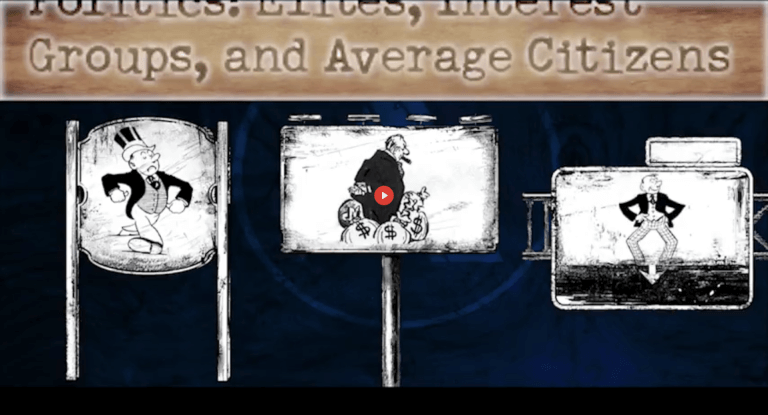
Sorry about the play button, screencaps can be really hard to get.
And they looked at 1,779 policy changes from 1981 to 2002. In 2015 Martin Gillens did a followup where he looked at 2,245 policy changes from 1964 to 2006. And what these guys found was that policy changes were driven entirely by elite opinion,
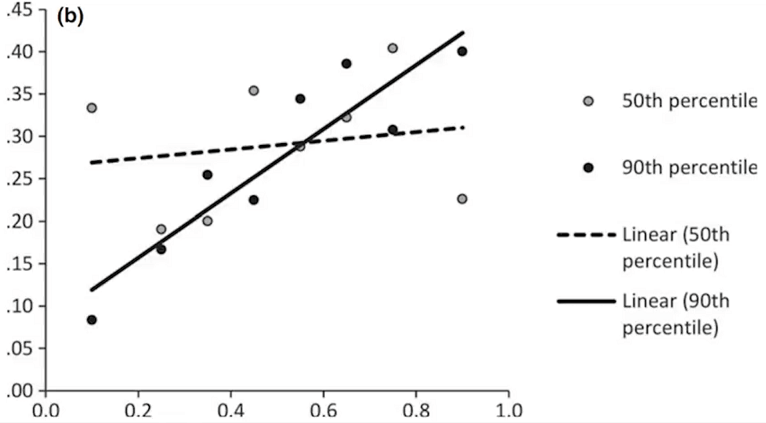
and to a lesser extent by special interest opinion.
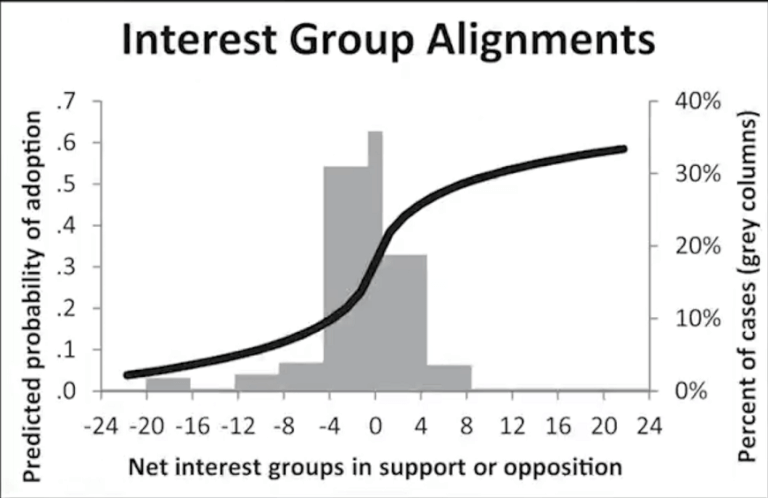
According to them, average citizens preference had almost no effect on policy change.
Martin Gilens has done great work on this front, and you’ll see his work referenced every now and then.
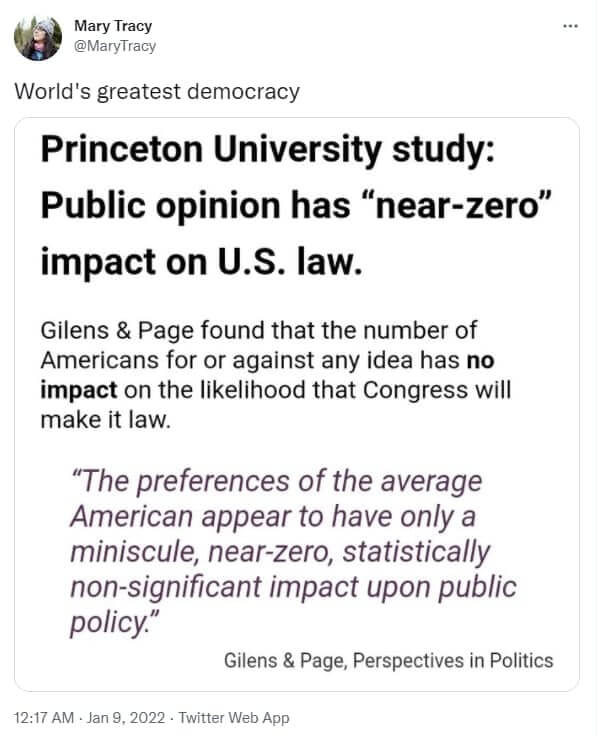
But how could this be? Wouldn’t a political party that had nothing to offer the peasants not be able to win elections? Since we live in a Freedom Democracy this couldn’t possibly be true, right?
Whether the average citizens 90% opposed a policy, or 90% supported a policy it still had about 30% chance of happening.
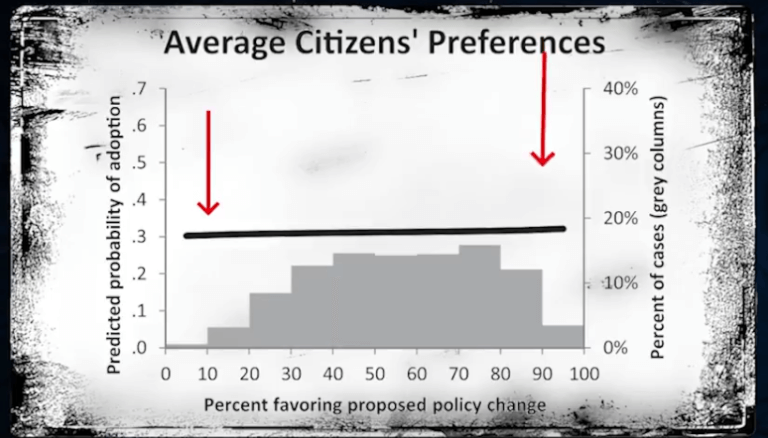
With “economic elites,” the story is radically different. If they all oppose something, it doesn’t pass. If they all support it, it’ll have a roughly 60% chance of getting passed.
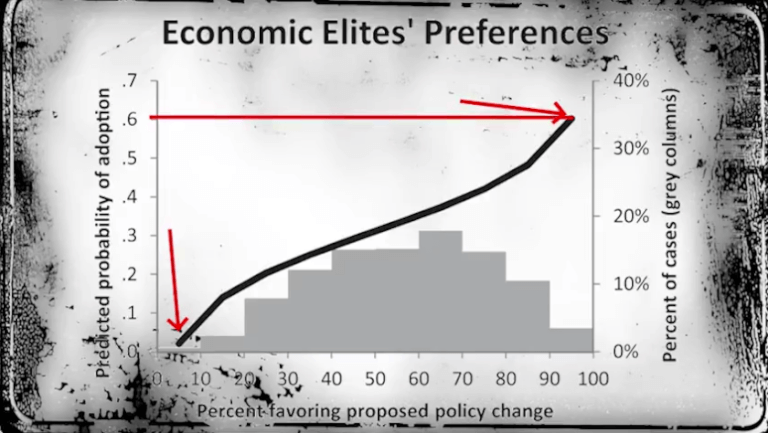
For interest groups, the important effects are around the middle, where interest group start net supporting a change.
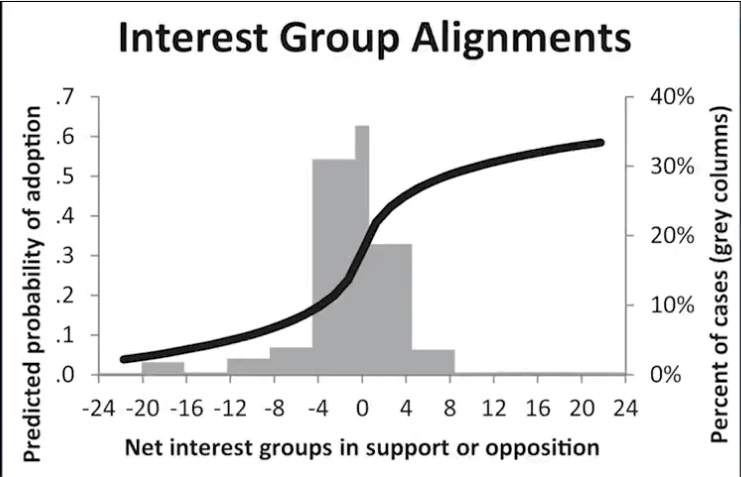
It’s pretty amazing when you see it graphed out like that, how absolutely anti-Democratic the system really is. Rich people get what they want, and you get nothing. With the only possible exception of if you have a strong special interest group that you give money to. Then you might have a small chance of getting what you want on a single policy, possibly.

Alt-Hype rebuts some common rebuttals that were laid out against this study. They point out that the middle income Americans “won,” against the rich 47% of the time, which is true, but utterly irrelevant. If 49% of the rich want policy x, and are opposed by 51% of the peasants, if policy x doesn’t pass, that counts as one win for the peasants. On the other hand, if 99% of the peasants don’t want policy y, but 99% of the rich do, if policy y passes, that counts as a single win for the rich. So there you have it, both sides have a win apiece, so we’re all tied up.
And BTW, I think everyone acknowledges that there is a class of people, who I refer to as the Democracy Class, that doesn’t always 100% agree with each other on everything. You are 100% excluded from the debate, and that has been made extremely obvious with the massive censorship regime that we live under, but amongst dipshits who still have a twatter account, they don’t always get what they want 100% of the time. There are internal squabbles. That the peasants are occasionally on the winning side of a Democracy Class infight, where 47% of the rich beat the 53% of the rich who opposed policy x, does not mean that Freedom Democracy is actually real.
What Gilens did was take a threshold. Comparing instances in which 75% of elites, or 75% of middle income people either supported, or opposed a law.
There are a few studies mentioned here, and in this one by Gilens, a followup, he sets out to destroy the fake fairness that could be inferred from tiny marginal “victories,” by the peasant class by looking at strong support only.
When the affluent strongly favour a change, but the middle income doesn’t strongly favour a change, it gets passed 55% of the time. If both the affluent and the middle income strongly favour something, it gets adopted 49% of the time, which would indicate a negative effect of middle income support.
The same thing is seen when the affluent don’t strongly support something. If the middle income also don’t strongly support it, it gets passed 29% of the time. But, if the middle income do strongly support a measure and the affluent strongly oppose it, it only gets passed 24% of the time. Again, indicating a negative impact of middle income support on an issue.
Looking the other way, you see the impact of affluent support on something being between 25-26%.
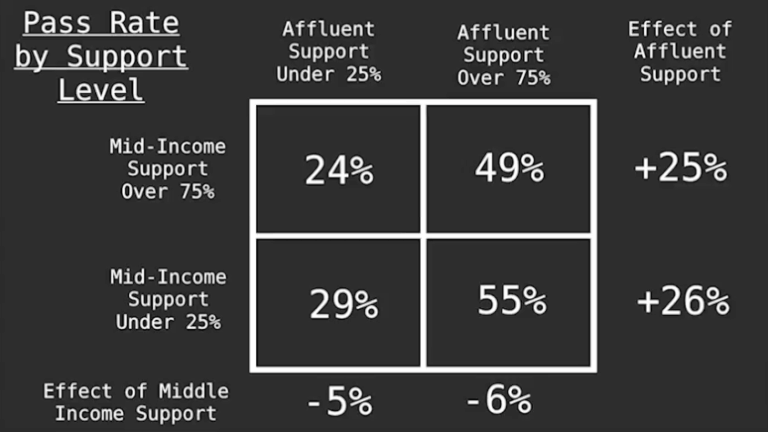
Yes, you read that correctly. If middle income people want something that makes it less likely that they will get that policy, even after adjusting for what the rich want.

In one sense this could be misleading, but only in the opposite direction. The definition of the “rich,” in Gilens study, only imperfectly captures the Democracy Class. After all, their definition of rich was merely the 90% percentile, which correlates to a household income of $146,000. They needed to get enough data to have statistically solid conclusions, but people who make $150,000 a year are, at best, in the shitty Striver Class. Now that group includes billionaires, but it’s not exactly the ultra rich. This explains why the peasants occasionally “win” against the rich. It’s just that their definition of rich is crude and imperfect.
The same story can be seen in killing policies that both group opposes. If the affluent strongly opposes a policy, but the middle class doesn’t strongly oppose it, it’s only adopted 4% of the time. If the affluent oppose, and the middle class also strongly opposes a policy, it gets adopted 15% of the time.
If the affluent don’t strongly oppose something, and neither does the middle class, it gets adopted 34% of the time. If the affluent don’t strongly oppose something, but the middle class does strongly oppose it, it gets adopted 40% of the time.
Again, indicating a negative impact of middle class preference on policy that gets adopted.
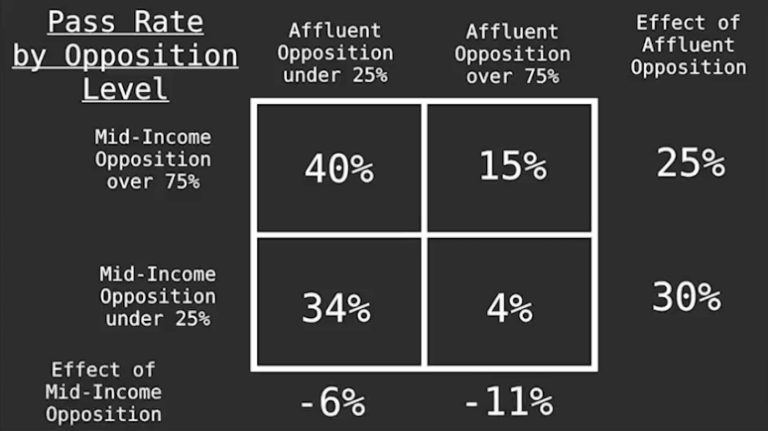
He gets into studies that have been done on “electoral authoritarian regimes.” And of course he finds exactly what everyone should expect, which is that they are more responsive to public preference. Which is to say they are more democratic. Alt-Hype’s explanation of the political equivalent of bureaucrat gang is so great that I need to reprint it verboten.
And suddenly I am reminded of one of Hans Herman-Hoppe’s arguments for Monarchy. As a politician, you’re an actor within a government. You are not intimately tied to the general health of the country. In fact if you’re a senator, you can gesticulate and claim that you had nothing to do with anything bad that happened, or anything perceived to be bad that happened in the country.
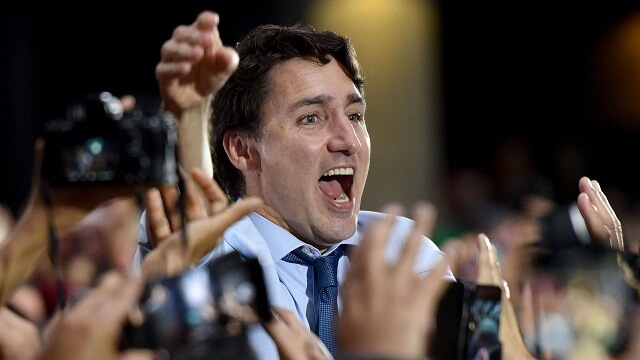
I should make it extremely clear that I do not endorse Monarchy or any of that other stuff. The solution is a populist political party, and possibly direct democracy. Justin Trudeau, having daddy be PM, is the closest thing to what you would actually get with a real hereditary monarchy. I think the results speak for themselves.
Nevertheless a true monarchy is no less democratic than Representative (Fake) Democracy.
Even as president in the US, you can say your ability to act was constrained by the congress or the courts,

that you inherited- a mess from the other guy, –
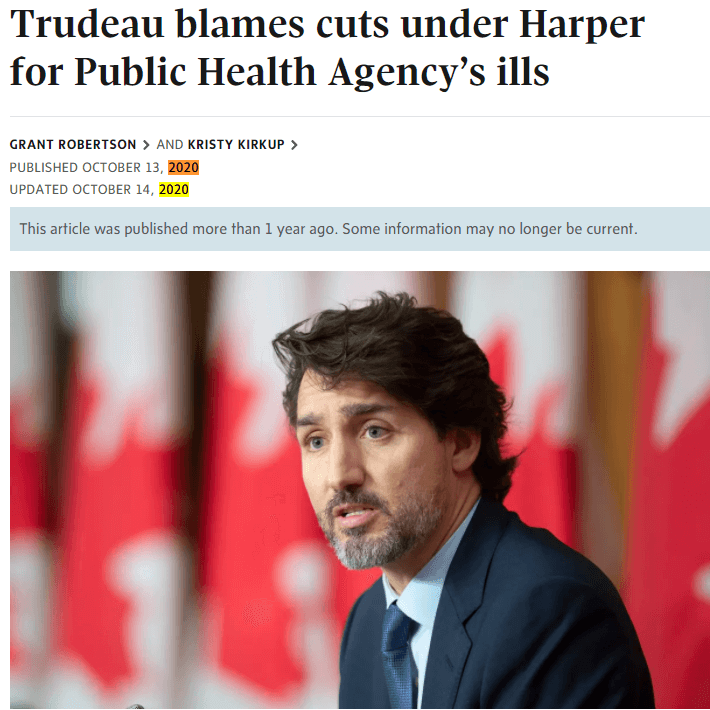
Note: Harper stopped being PM in 2015.
that you only had four or eight years to implement your plan. And maybe it really is true. Maybe there is no single actor or group of actors that you can blame in the US. The buck doesn’t stop anywhere.
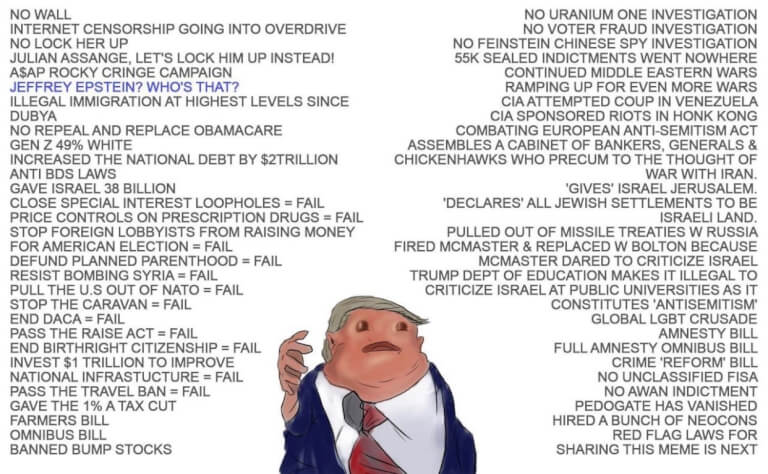
But if you’re Pinochet, and you have total ultimate control of everything that goes on in Chile, well if something goes badly, there’s no one else to hide behind. You can’t blame the Republicans or whatever, because you’re the only ones in power.

I couldn’t find the “This is Biden’s America” tweets.
In the US, you can pick a side. And then if anything goes wrong it’s either because of the other side. Or if your policy is implemented and that went wrong, well “it’s because those lousy Democrats corrupted the policy”, or “the Republican crippled Obamacare, it wasn’t really what we wanted.”
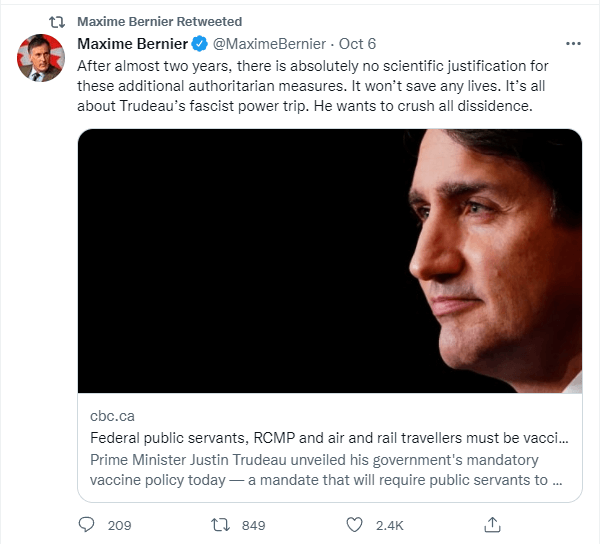
This is basically proto-Finklethink. There is one policy agenda, but they split up the policies amongst the two parties. Republicans get to be pro-war and pro-billionaire/corporate. Democrats get to be anti-White and pro-Perverts. They pretend to be fighting, there is one agenda, and we see that with California not getting socialist healthcare despite being run by Democrats, and Utah having the most anti-White covid policy of any state, despite having a Republican Governor.
Even if they can’t Finkle the issue, they’ll just do it anyway.
There’s all sorts of games you can play. The system is sufficiently complicated that you can always find some plausible out. So the buck never stops anywhere.
 I hate to keep interrupting this excellent speech, but the exact same thing is true for non-electoral politics. As someone who has called into the police multiple times, I can tell you it’s basically impossible to figure out why a certain policy was recommended, why a press conference stated or didn’t state certain things, why certain charges were or were not pressed. There’s a complicated system that you are not a part of.
I hate to keep interrupting this excellent speech, but the exact same thing is true for non-electoral politics. As someone who has called into the police multiple times, I can tell you it’s basically impossible to figure out why a certain policy was recommended, why a press conference stated or didn’t state certain things, why certain charges were or were not pressed. There’s a complicated system that you are not a part of.
So non-sham electoral politics, or what we think of as non-sham electoral politics in the US, it diverts your energy away from things that could actually challenge the regime, and redirects you down the blind alley of electoral politics. “Here, run around in this little idiot box a bunch. Hit the pads, tire yourself out. Okay you elected Donald/Biden or whatever. Yay you won/better luck next time. Now back in your cage.”
That’s why everyone in our thing needs to watch at least one Jimmy Dore video.
In other electoral authoritarian regimes the public knows that the elections are a sham. But what if you had an electoral authoritarian regime where the public was well and truly conned, and truly believed that elections mattered. Well you’d have a level of control beyond any dictatorship. Because at least open dictatorships now have the burden and the odiom of being a dictatorship. And have the policy buck stopping at them. And while direct action is the only way to throw out a dictator, at least the public knows this fact.
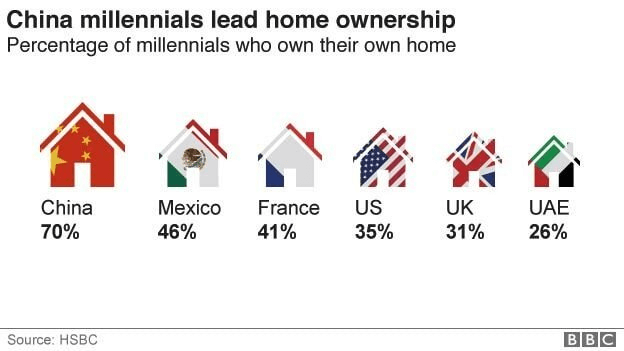
And the fact that in these Banana Republic the population knows the elections are shams is possibly why those regimes are more responsive to changes in public opinion than in the US.
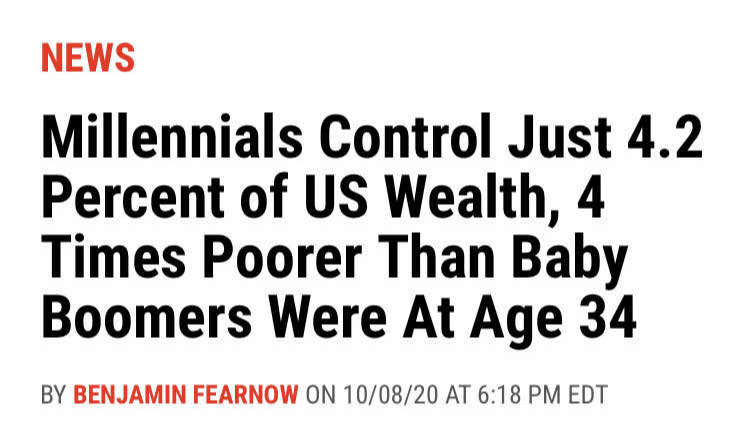
Those poor Chinese who have to live under that dictatorship that doesn’t flood their country with third worlders, push child trannies on them, burn down their churches after slandering them, and provides houses for them. Those poor Chinese don’t have Freedom Democracy, where if you are a BLMer you can burn down an Arby’s and loot a target.

Where you can do a literal insurrection in Seattle, called CHAZ, without repercussions.

But if you are an Uppity White Person and you show up to the capitol, Washington, DC or Ottawa, Ontario, well you need to go to jail, peasant.
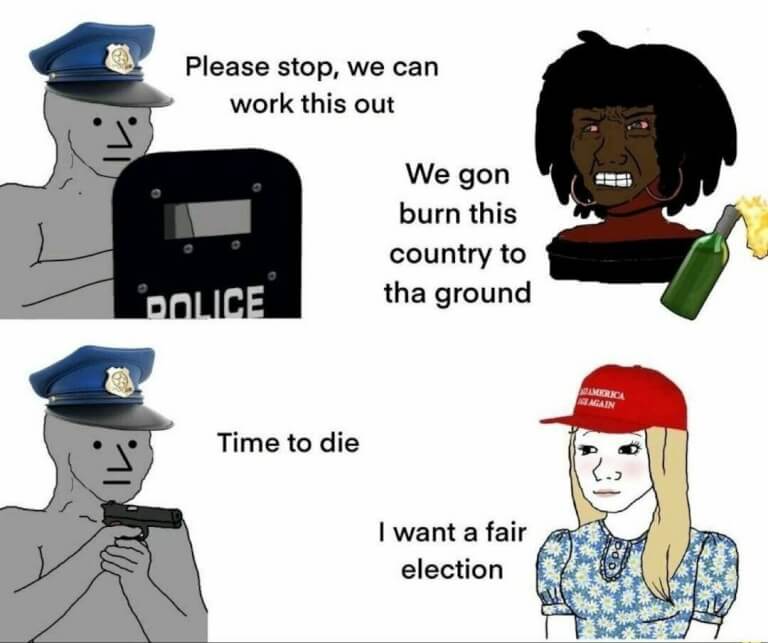
That if the police don’t just murder you and then cremate your body, so your family can’t start asking the wrong questions.
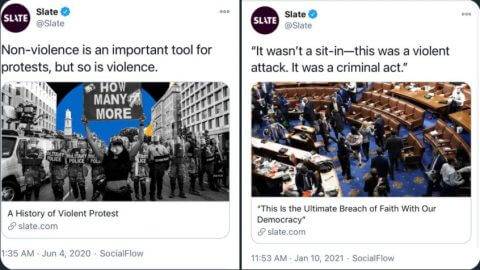
That wouldn’t be true Freedom Democracy if we were to allow that, now would it?

There is a character similar to Mr. Hardcore, who I have detailed in the past, where they love to pretend that Representative Democracy is real. That people get what they want from the government, and therefore deserve their oppression by said government. An example of that thinking is here.

I think that’s because there are a lot of anti-social losers who get involved in non-mainstream politics. Because they don’t like average people, it flatters them to think that randos you pass on the street are really big fans of Google Censorship, child trannies, wars for Israel, or whatever else. It gives them a certain unearned sense of superiority. They can pretend that the reason why the government is bad is because the average everyday people who have been socially rejecting them their entire lives are bad, and thus getting the government they deserve.

Those people are simply a lost cause. Anti-Social weirdos cannot be a part of any successful political movement. But they occasionally might have an influence on the next group of people, who are looking for an excuse to not do real political activism.
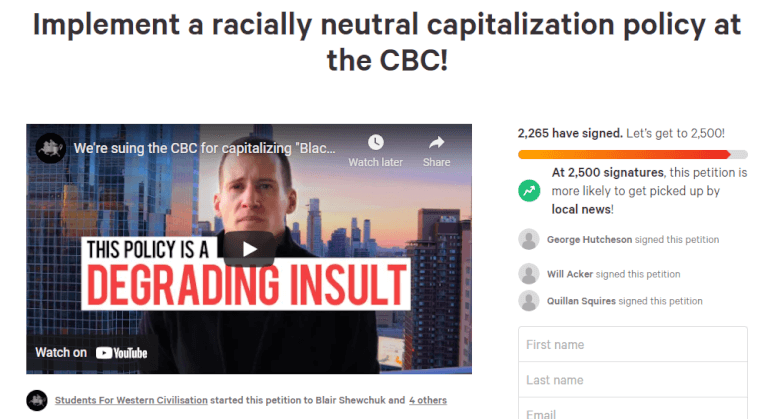
Unlike our friend George here.
Forming a political party is hard, as political parties are oligopolies. They do not need to respond to market forces, because a first past the post system forces the peasants to vote “strategically.” In other words, to pick the lesser of two evils.
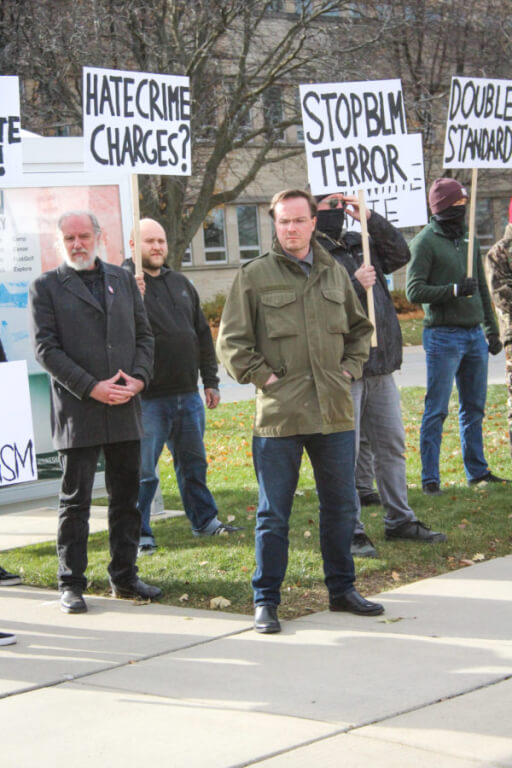
A party must first get enough of a floor of votes to achieve viability in the eyes of the voting public. That’s not an easy task, although the unpopularity of existing parties makes it easier. But whether easy or not, it’s what needs to be done.
 In another post I’ll expand on how we’re going to do that for Canada.
In another post I’ll expand on how we’re going to do that for Canada.




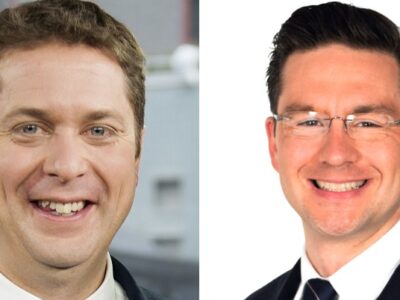

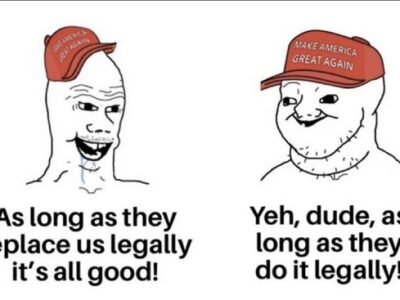
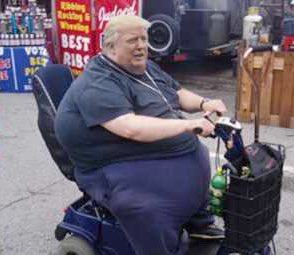
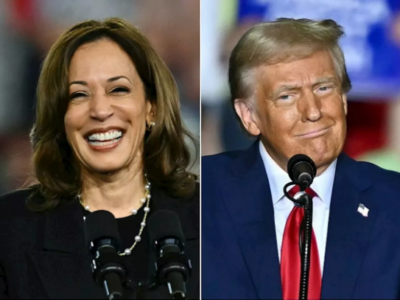

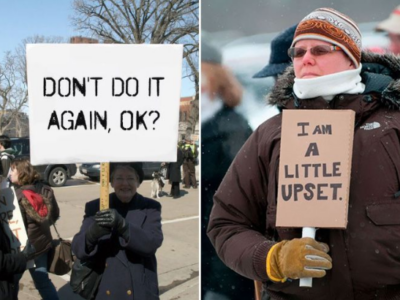


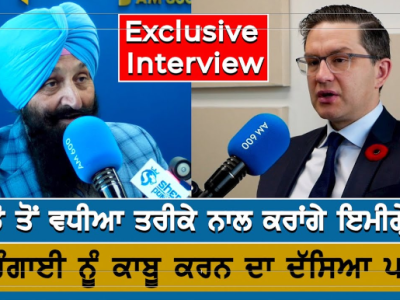
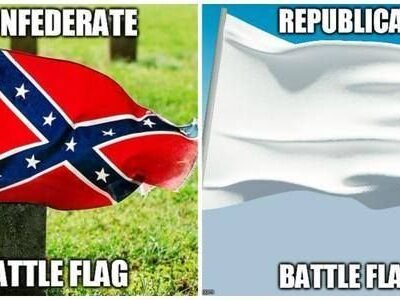

China also has a sort of representative democracy, but it’s more complicated and bureaucratic.
They basically vote for their local rep who votes for another guy who after a few more steps vote for the people who go to the national peoples congress where they vote on the next five year plan… and then of course there are various layers of bureaucracy and national and local officials.
it is very “corrupt”, but that corruptness actually allows people at the local levels who have less official power to bribe or use their relationships into getting what they want.
In many ways the boot can come down much harder in western countries because they know that their orders will be carried out by the non-corrupt lowly peons.